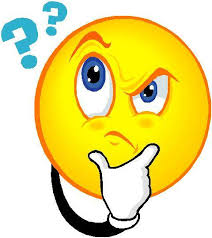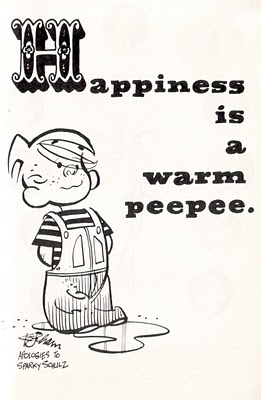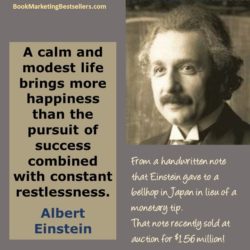The Science Of Happiness
Author : Stefan Klein
Genre : Self-Help, Science, Philosophy

So what really is Happiness? Almost everyone wants it, and yet so few truly have it. As Voltaire said, “We all look for happiness, but without knowing where to find it: like drunkards who look for their house, knowing dimly that they have one!”

But this futile search is perhaps now over. Klein, one of the most influential science writers in Europe, sieves through the best in neuroscience, in psychology and even eastern philosophy, to explain how exactly is happiness generated in our brains, and the conditions required for the pursuit of happiness. The result is this international bestseller.

One of the troubles in analyzing and solving for happiness is that everyone experiences it so differently. “For one person it means running barefoot through the dewy grass, for another it’s holding his baby in his arms. Sex can make people happy, as can a new outfit… There are also people who find happiness in the very absence of all this, as when a Zen monk experiences bliss by losing himself in emptiness”.

And while medicine has spent a lot of time to study unhappiness (think of all the psychiatrists who make a living trying to reduce fear, depression and anxiety), very few have tried to study the brain circuits for joy, pleasure and euphoria. Only now have neuroscientists found that the feeling of happiness and calmness comes due to actual hormones being secreted in our brains – serotonin, dopamine, vasopressin, endorphins etc. And, more importantly, with “the right exercises, we can (actually) increase our capacity for happiness”, by delivering higher secretion of these hormones. Conversely, if we are depressed, our serotonin level sinks, and grey cells die. Thus, “happiness is a fountain of youth for the brain.”
Practice being happy: Enough experiments have proved that our brain nerve cells are malleable. New connections are constantly formed (e.g. between a rude traffic driver leading us to getting angry) and with practice, we can rewire our brain. Indians love chilis, not because it hurts them less, but because they “have learned to love a kind of pain that makes others recoil.” So, our attitude on whether the glass is full or empty matters much more than the actual content in the glass!

Genuine Smile: Let’s start with smile, that ubiquitious symbol of happiness. There are 19 different kinds of smile based on how many of the 42 facial muscles are used. Only one smile is genuine, this is when the corners of the mouth go up, the eyes are slightly narrowed with wrinkles appearing in their corners, and the upper half of the cheeks rise. This movement (requiring the involuntary orbucularis oculists muscle) cannot be faked or controlled. Not only is it an infallible sign of joy, in itself, it makes us happy. So, we need to train ourselves to ‘feel right’ so this genuine smile comes.
Love, Desire and Passion: When the brain is focussed on our lover, the pattern of activity is similar to (scientists have actually measured it showing photographs of the subject’s beau while recording the activity in their brains using functional MRI) when we are under the influence of heroin and cocaine! Powerful hormones like Dopamine (the molecule of desire) are secreted making us alert and attentive. In various mammals, just the sight of a potential partner increases dopamine levels by 44% and goes down again after mating.
Female rats eat young rats, but before they are about to give birth high levels of oxytocin are released which give her motherly feelings of care and tend to her kids. In experiments where this oxytocin was artificially blocked, she ended up eating her own young ones!
Friendship: “If you take friendship out of life, you take the sun out of the world”, said Cicero. And this is not just philosophy. Modern science shows how a familiar face gives us warmth by secreting calming and pleasure giving hormones in our brain. Do these hormones help? The party drug Ecstasy makes us happy because it releases a large amount of serotonin and dopamine in our brain. Scientists speak of such drugs as entactogen, a drug that touches the innermost part of ourselves. The chemist who first concocted Ecstasy said this of his feeling after taking it, “I felt light, happy and inspired by an incredible strength… It was as if I was not just a citizen of the earth, but at home in the whole universe.” This feeling of being one with the world is what the ancient Indian sages also preached: vasudhaiv kutumbkam (the whole earth is my family). [However, too much of any hormone is also a problem as drug addicts know. Desire becomes obsession; determination becomes lust; self-confidence becomes megalomania; a rich imagination becomes madness.]
Sports: “People who engage regularly in sports feel better and have more self-confidence; they are less fearful and less often depressed… Moving muscles stimulates the production of hormones like serotonin and endorphins that can trigger feelings of slight euphoria.” As Rosseau said, then, “For the mind’s sake, it is necessary to exercise the body”!

Purpose: “A life without goals and activity quickly leads to depression”, which probably explains why “rich people who have no need whatsoever for more money continue to be professionally active instead of sunning themselves in Bermuda.”
Variety: Variatio delectat – change gives pleasure is the famous roman proverb. There is the famous joke about Mr. And Mrs. Coolidge when he was the President of USA. The First Lady is told about a rooster in a coop copulating dozens of times a day without getting tired and jokingly says, “Tell that to the President”. The President then asks, “Every time with the same hen?” When told that the hens keep changing, he retorts, “Tell that to Mrs. Coolidge.” In fact, behavioural scientists call this waning of sexual desire in long standing partnerships The Coolidge Effect! Incidentally, the greatest pleasure is in anticipation (functional MRIs show the neutrons are more active while waiting and actually go still when the reward itself is given).

Rat race does not pay: “As soon as income exceeds a poverty threshold, the relation between wealth and well being disappears”. In fact various studies have shown that chasing after fame and money diminishes life satisfaction. Recent studies show ambition as an instrument of torture, a fruitless struggle because as soon as people “achieve their heart’s desire, they set their sights on new one.”

Social equality and rights: Democracy keeps people happier than dictatorship because it allows people to decide their future. The feeling of helplessness and dependency is very depressing. In Switzerland, where every cantonment allows its citizens to vote for local issues, people have consistently ranked the highest in happiness. Various studies have shown that “the more people could participate in public decision making, the more satisfied they were with their lives.” Similarly, the Scandinavian countries have always come out tops on happiness surveys which is correlated with the high degree of social equality (minimal difference between rich and poor).
Meditation: Brain scans of people meditating have shown remarkable activity, similar to what devotees have reported on mystical experiences. In fact, now we know there is an area of the brain (temporal lobe) which, when activated (read about experiments with the God Machine), give subjects the feeling of “having experienced God for the first time”! [Incidentally, epilepsy fires these same neutrons so no wonder “epilepsy is well documented in a number of famous people who were intensely occupied with religion.”]

Why should you read the book: To learn to be happy by understanding all the things that matter and the things that do not. Also, in a way to understand how our body controls our mind and vice versa. The mind-body linkage is taught much less than it should.
Goodreads Link: The Science of Happiness: How Our Brains Make Us Happy-and What We Can Do to Get Happier by Stefan Klein | Goodreads

 This information will never be shared with third party
This information will never be shared with third party
Nice review and the book seems appealing too. After all, all of us strive to be happy at the end of the day. Good to know that we can train our brain to be happier. Will definitely read it!
Well Reviewed, looking at brighter and positive side. Talking about happiness is needed as much as about depression. Hope to read this book.😀
Beautifully written, It really help us to understand our own mind and what makes us happy and what doesn’t.
Beautifully written, I think it’s a “must read”book! Hope to read this very soon